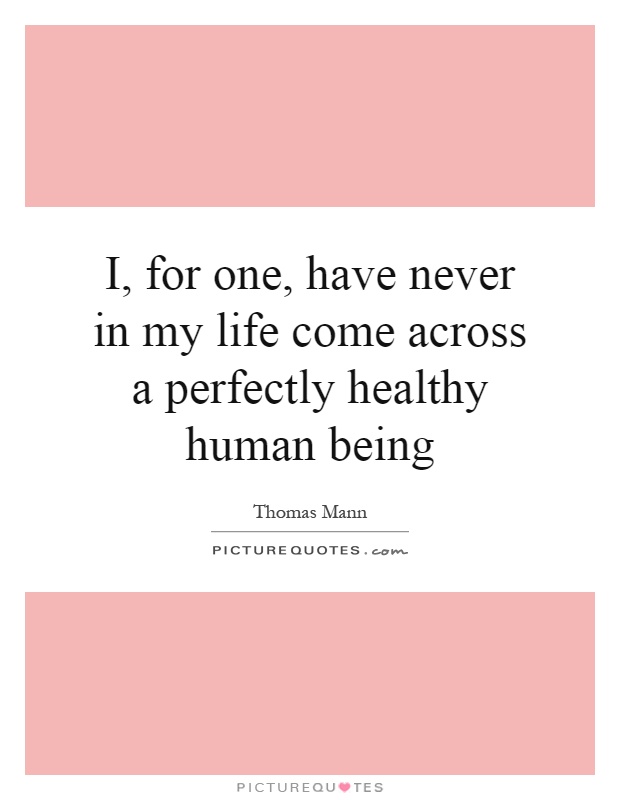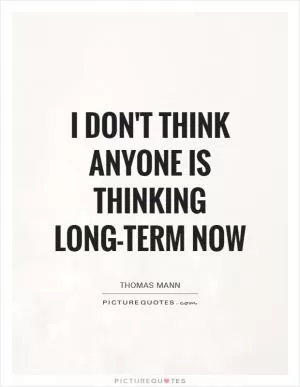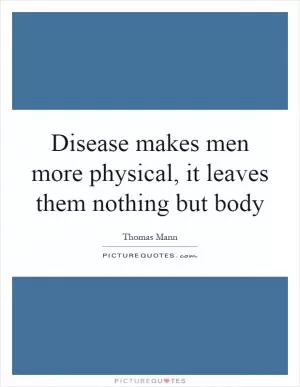I, for one, have never in my life come across a perfectly healthy human being

I, for one, have never in my life come across a perfectly healthy human being
Thomas Mann, a renowned German novelist and essayist, once famously stated, "I, for one, have never in my life come across a perfectly healthy human being." This profound observation by Mann speaks volumes about the complexities of human nature and the inherent imperfections that define our existence.Mann, known for his deep psychological insights and keen observations of human behavior, understood that perfection is an unattainable ideal. In his works, such as "The Magic Mountain" and "Death in Venice," Mann delves into the depths of the human psyche, exploring the inner struggles and contradictions that make us who we are. He portrays his characters as flawed and vulnerable, grappling with their own desires, fears, and insecurities.
In the context of Mann's statement, it is important to consider the concept of health not just in terms of physical well-being, but also in terms of mental, emotional, and spiritual health. Mann suggests that true health is a holistic state that encompasses all aspects of our being, and that achieving such a state is a rare and elusive goal.
Mann's observation also highlights the universal nature of human suffering and the inevitability of facing challenges and hardships in life. No one is immune to pain, loss, or adversity, and it is through these experiences that we grow and learn more about ourselves and the world around us.
Furthermore, Mann's statement can be interpreted as a call for empathy and understanding towards others. By acknowledging our own imperfections and vulnerabilities, we can cultivate a sense of compassion and acceptance towards those around us who are also struggling with their own issues.












 Friendship Quotes
Friendship Quotes Love Quotes
Love Quotes Life Quotes
Life Quotes Funny Quotes
Funny Quotes Motivational Quotes
Motivational Quotes Inspirational Quotes
Inspirational Quotes